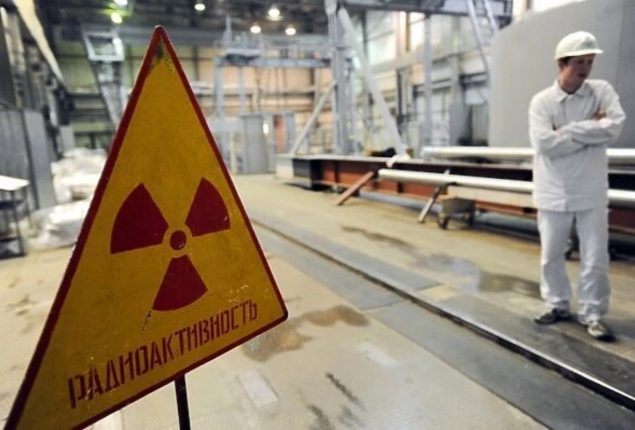FM Dar, DG IAEA discuss issues related to nuclear energy
BRUSSELS: Foreign Minister Mohammad Ishaq Dar Thursday met Director General, International Atomic...

IAEA issues warning: Attacks on nuclear plant in Russia lead to global risk
On Monday, Russia and Ukraine exchanged blame before the United Nations Security Council for the attacks on Europe’s largest nuclear power plant. Rafael Mariano Grossi, the head of the International Atomic Energy Agency, stated that the world is “dangerously close to a nuclear accident” due to these attacks. Without attributing blame, Grossi mentioned that his agency has confirmed three attacks against the Zaporizhzhia Nuclear Power Plant since April 7.
“These reckless attacks must cease immediately,” he told the Security Council. “Though, fortunately, they have not led to a radiological incident this time, they significantly increase the risk … where nuclear safety is already compromised.”
Grossi informed reporters after the meeting that the remote-controlled nature of the drones used in the attacks on the plant makes it impossible to definitively determine their origin. “To make such claims, we need proof,” he stated. “These attacks have been carried out using a multitude of drones.”
Russian-controlled territory in southeastern Ukraine houses the Zaporizhzhia plant, which comprises six nuclear reactors. Concerns about a potential nuclear catastrophe have persisted since Russian troops seized the plant shortly after invading in February 2022. Ongoing clashes between Russian and Ukrainian forces, coupled with the tense supply situation at the plant, have heightened the risk of a disaster.
On Monday, Ukraine and its allies once more accused Russia of the dangers at the site, with the United States asserting, “Russia does not care about these risks.” Robert Wood, the US deputy ambassador, made this statement during the Security Council meeting, which was convened at the initiative of the US and Slovenia. In response, Russia blamed Ukraine for the attacks.
“The IAEA’s report does not pinpoint which side is behind the attacks,” Russia’s UN Ambassador Vassily Nebenzia said. “We know full well who it is.”
“Over the last few months, such attacks not only resumed,” Nebenzia said, “they significantly intensified.”
Ukraine’s ambassador to the UN, Sergiy Kyslytsya, labeled the attacks as “a well-planned false flag operation by the Russian Federation,” alleging that Russia orchestrated them to divert attention from its invasion of Ukraine. The Zaporizhzhia facility ranks among the 10 largest nuclear plants globally. The conflict in the southern region of Ukraine, where the plant is situated, has sparked concerns about a potential nuclear disaster similar to the Chernobyl incident in 1986. In that event, a reactor exploded, releasing deadly radiation over a wide area.
In recent months, neither Russia nor Ukraine has achieved significant advances along the 1,000-kilometer (620-mile) front line spanning eastern and southern Ukraine. The conflict has evolved into a war of attrition, with drones, artillery, and missiles playing prominent roles. Accusations concerning the Zaporizhzhia plant have been frequently exchanged between Russia and Ukraine.
According to the IAEA, the most recent strikes did not compromise the facility, as it is built to withstand the impact of a commercial airliner. Although the plant’s six reactors have been shut down for months, it still requires power and qualified staff to operate essential cooling systems and other safety features.
Catch all the International News, Breaking News Event and Latest News Updates on The BOL News
Download The BOL News App to get the Daily News Update & Follow us on Google News.